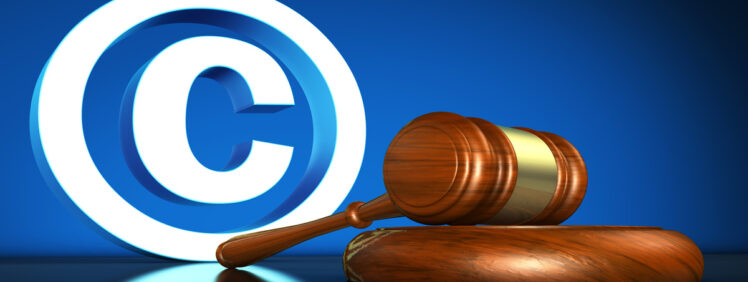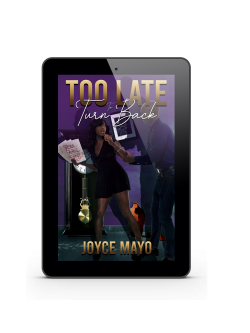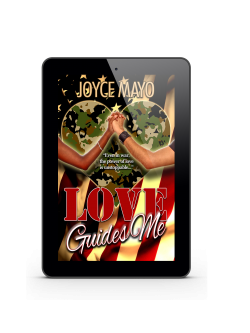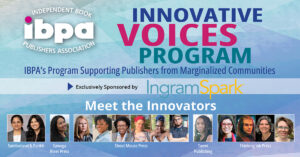This question arises constantly and with the rise of the “digital age”, more and more authors worry about the risks of their work being stolen. Knowing your rights and how to navigate using them is what sets the pros apart from the newbies. While others may disagree, I am a strong believer that you should get your work copyrighted as soon as you’ve completed it. I debate this constantly with people online, and stand by my affirmation: protect your work.
We live in the Internet age now. While there are many reputable people out there, an equal amount of not-so-trustworthy people exist now as well – and they are not afraid to steal the work of others. There are “contests” that find ways to hold ownership rights to your work; vanity presses that promise to publish your poems or short stories in their anthologies for a fee, and smarmy people acting as agents and editors that infringe on your intellectual rights through the contracts they have you sign.
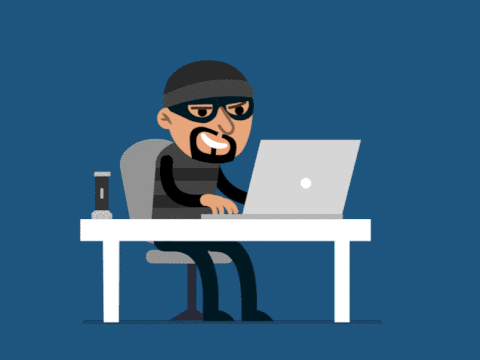 You may not always be able to protect your work from thieves, but a copyright can help you fight them if they do.
You may not always be able to protect your work from thieves, but a copyright can help you fight them if they do.
Plagiarism and copyright infringement is a real issue, and you need to protect yourself, especially if you’re a brand-new writer. I remember how, as a young writer, I would share my work everywhere, and with anyone willing to read it. You are probably the same way – sharing your work on websites, excerpts of it on discussion boards and social media, even submitting to any and every contest you can find. There’s nothing wrong with that, but when it comes to your book or anything you plan to publish, protect yourself with an official copyright.
One thing is true: never reveal to a publisher, agent, or editor in your query letter that you’ve copyrighted your work when sending in your submission package. It reeks of amateurism, and your work may be passed over as a result. It’s just kind of a pet peeve to us publishers and some see it as an attack on their integrity, kind of like, “Who is this person to assume I’ll steal their work?”
As a publisher, having someone tell me that in a query letter just rubs me the wrong way, and gives me a weird feeling about how it might be working with this author in the future. This is just one of the stark truths about the publishing world and some of its biases, so avoid it by simply not mentioning your work is copyrighted.
Something You Didn’t Know About Copyright Cases
When we think of arguing a copyright infringement case, it centers around us proving ownership and authorship. So when we sit down in front of an attorney ready to sue the pants off of someone, we find ourselves surprised that another conversation will be taking place. In reality, many copyright suits are about issues of contract breach, illegal replication, and fair use statutes. Very rarely do issues of actual authorship dispute arise. When they do, it’s usually between people who have worked on a book together, and in a situation like that, the copyright holder is usually the one who will prove ownership.
The General Copyright Rule
Your work is considered “your intellectual property” the moment you start writing it. You legally own it. However, proving that ownership is where the extremely hard and frustrating part comes in. How do you prove that you are the author and owner if you haven’t registered it with the Library of Congress? Some people avoid copyrighting their work, believing that unreliable methods with be just as good. This, unfortunately, is not true.
Methods such as using the meta-data inside their web processing file – which shows when the file was created, last modified, and last saved – aren’t concrete enough to hold up in court. By the way, the Poor Man’s Copyright should never be used. Never. It has not, and will not, ever hold up in court. In fact, you can’t even file a federal copyright infringement suit against someone unless your work has been protected by the U.S. Copyright Office.
The “Poor Man’s” Copyright
The “Poor Man’s Copyright” is as effective as writing down “I own this” on a wet piece of paper. It doesn’t work, so don’t do it!(caption)
I actually did this once… back when I was fourteen and didn’t know any better. The Poor Man’s copyright is basically when you mail a copy of your completed manuscript to yourself, then keep the unopened letter with the postmark as “proof” of when it was created.
There is a myth that this will hold up in court as proof against copyright infringement. Key word in that last sentence is: myth. I always run across someone who confidently tells me that they used this method, and I’m still appalled by how many people still believe this works. The Poor Man’s Copyright does not hold up in court, and the evidence is always seen as extremely weak, if it’s even considered at all. No copyright case in the history of the U.S. has ever been won using a Poor Man’s Copyright, and here are some reasons why:
Mailing a document to yourself does not prove ownership. Simply mailing your manuscript to yourself does not hold the same ground as a Proof of Ownership form, notarized legal documents where you are swearing the work is yours, or any other proof that you created it. The court is fully aware that people constantly mail things to themselves that they don’t hold the copyright to, so this is not a fight worth undertaking.
Sealed envelopes can be opened. Steam, anyone? Sending a sealed envelope to yourself simply does mean it has never been tampered with. Not to mention, mail can get wet, damaged, or smudged while in transit, rendering your letter unreadable.
Unfortunately, it doesn’t get any better in court. Since you didn’t formally register your work for copyright, you can’t sue federally. That means your case will be seen in the state court. In state court, you’ll only be eligible to receive damages that either equal the amount of the copyright infringement, or the amount of money you lost, whichever one is greater. Unfortunately, copyright damages tend to hover around the amount of zero.
The Real Protection: the U.S. Copyright Office
These are the people you should be dealing with each time you are ready to release your work to the world. This is the protection you want and need. Why? Because it registers your work in the Library of Congress, and grants you with official documentation that proves you submitted the work and your affirmation of ownership. If someone were to plagiarize your work, you can file a federal copyright infringement suit against them and claim punitive damages. In all honesty, it’s always best to have extra insurance – and peace of mind – when it comes to something you’ve worked so hard on.
Did you know that you can copyright your work online through the U.S. Copyright Office’s website by submitting an electronic copy? The process is extremely streamlined, and you get a confirmation number immediately, which can be used as your temporary registration number. This temporary registration number can even be referenced while you are waiting for your official certification to be filed. You can learn more about how to file electronically at http://www.copyright.gov/eco/.
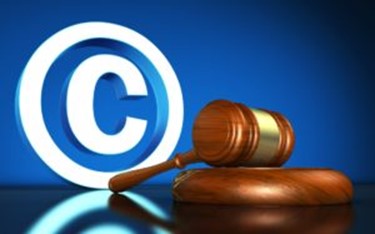 It’s always a good idea to understand intellectual property and digital copyright laws. Knowledge is power, and what you don’t know will hurt you in the long run.
It’s always a good idea to understand intellectual property and digital copyright laws. Knowledge is power, and what you don’t know will hurt you in the long run.
Protect Your Work
Despite the debates that continue to rage online, or warnings that “your work will be rejected if you copyright it”, you should always protect your work. It’s just the smart thing to do nowadays. We live in a digital age of hackers and blatantly dishonest people. While publishers and reputable agents will not steal your work, there are people out there who will.
Prior to being accepted by a publisher, you may find yourself shopping bits and pieces of it around to local publications, start up magazines, and anyone else willing to give you some publicity. Unfortunately, your odds are now increased to encounter some people who simply aren’t trustworthy or worse, are scammers. Those are the ones who may try to steal your work, and it’s a real energy drain having to take the time and energy to fight someone in court.
 Copyrights are there so the U.S. law and courts can help to rule in your favor if your work is compromised or used without authorization. Don’t make it harder for the law to help you.
Copyrights are there so the U.S. law and courts can help to rule in your favor if your work is compromised or used without authorization. Don’t make it harder for the law to help you.
It can be a hassle proving that you wrote something, and having a copyright in place to protect you is not a horrible thing. I implore you to disregard what you may hear about the Poor Man’s Copyright or blogs that claim you will be rejected if you copyright your work because it makes you an “amateur”. This is simply not true.
Copyrighting your work doesn’t make you an amateur – it makes you a smart businessperson. Mentioning it in your query letter is what makes you look like an amateur. If a publisher loves your piece and wants to publish it, they won’t reject it because you already copyrighted it. Whether you copyrighted it or not is really of no consequence to them, because they can always update copyright information if necessary.
That’s why our suggestion is to always get your work copyrighted, but when speaking to a publisher, don’t mention it. Especially while you’re still in the submission process – it reeks of amateurism and publishers really don’t care about it. And trust us: when you proclaim, “By the way, my work is protected by copyright”, the reason they aren’t dealing with you afterward isn’t that you got your work copyrighted – it’s because you mentioning it indicates you may be too “green” for this business. Just submit your professional queries as per usual, knowing in the back of your mind that your work is protected, and you’ll be just fine.
What do you think? Do you agree that you should copyright your work or not? Do you have any horror stories to share? Feel free to leave a comment and be sure to share this article with someone you think can benefit from this information.
